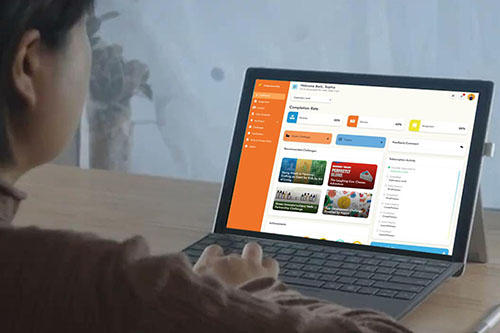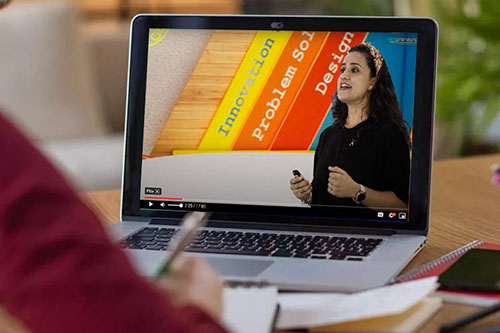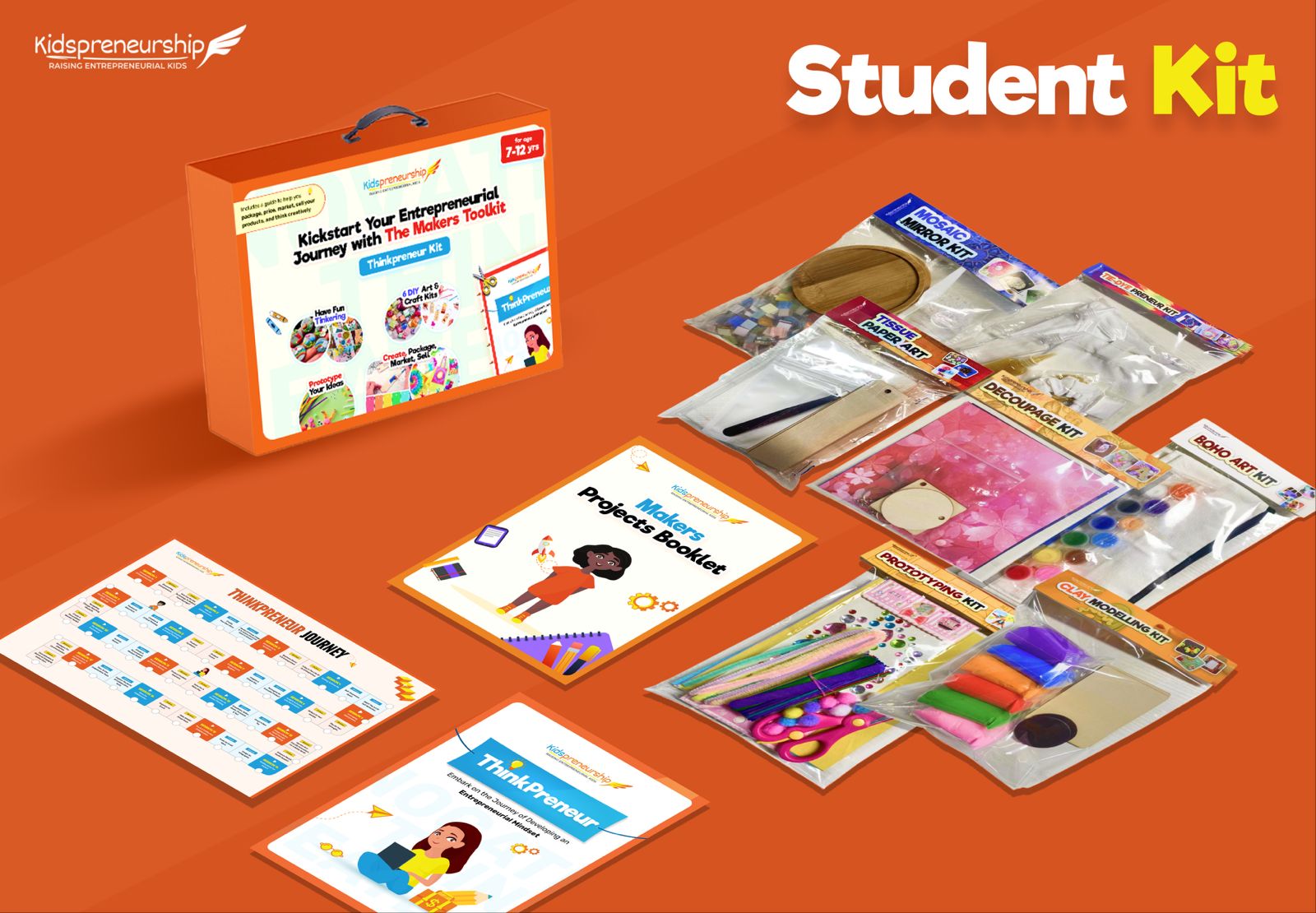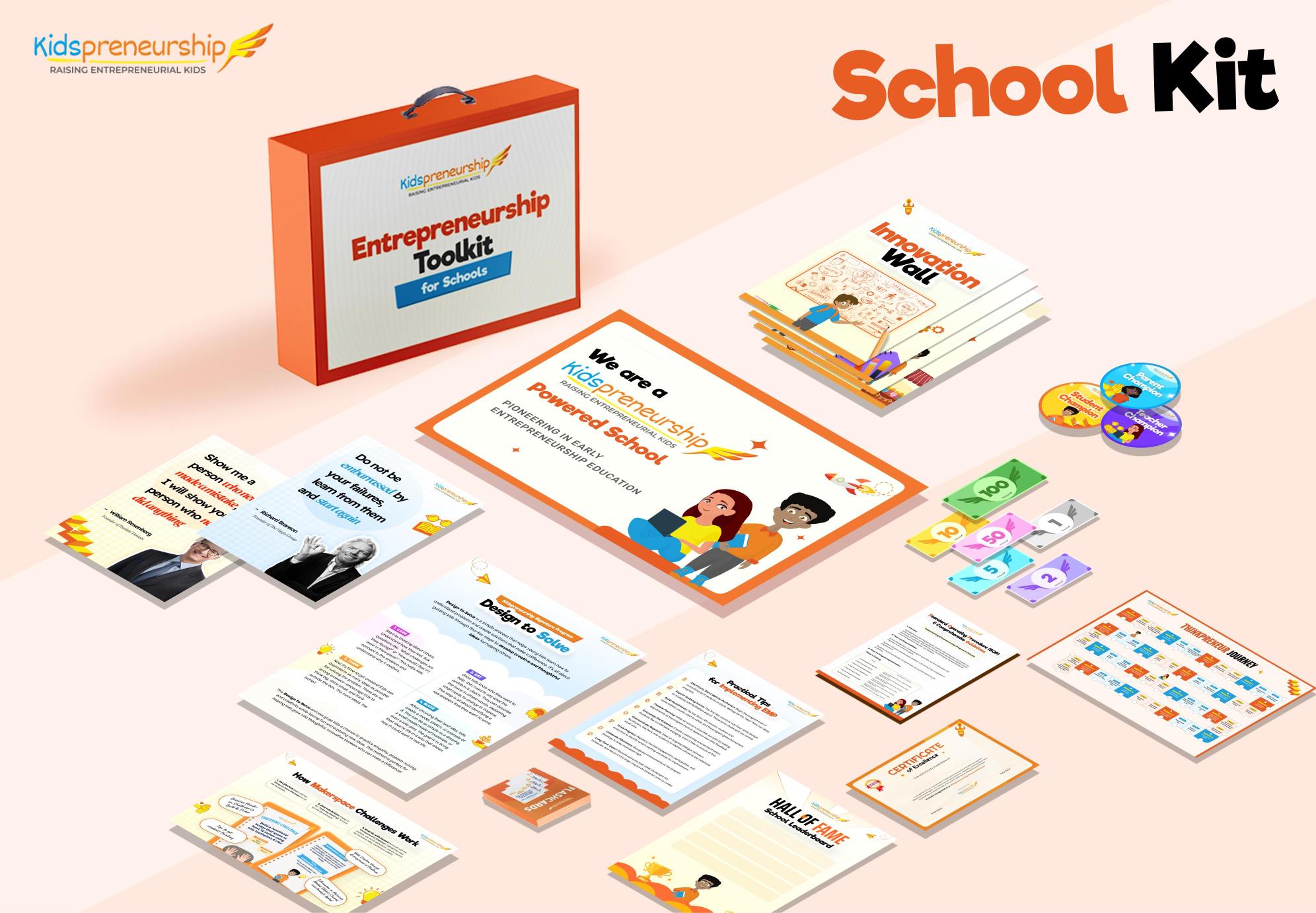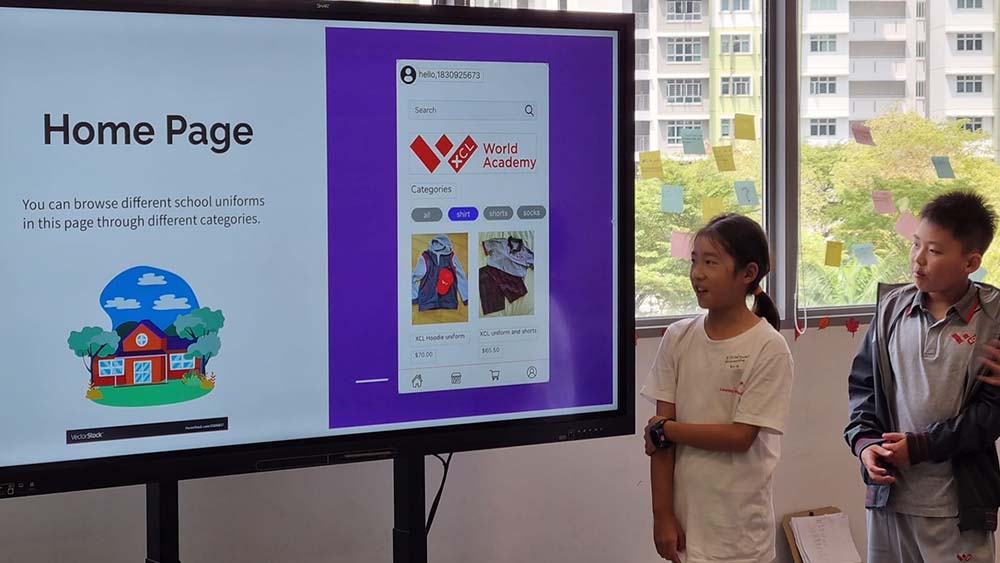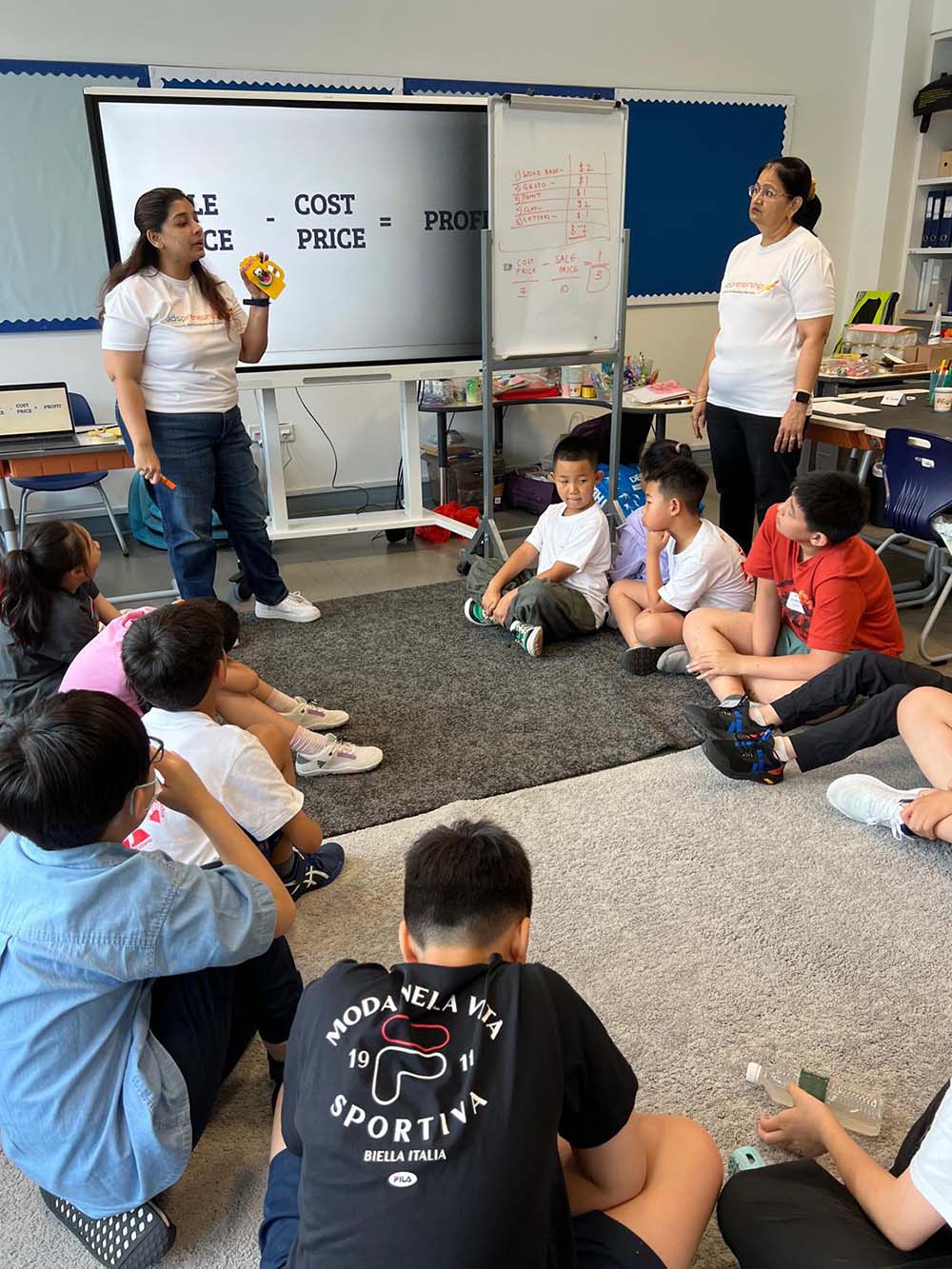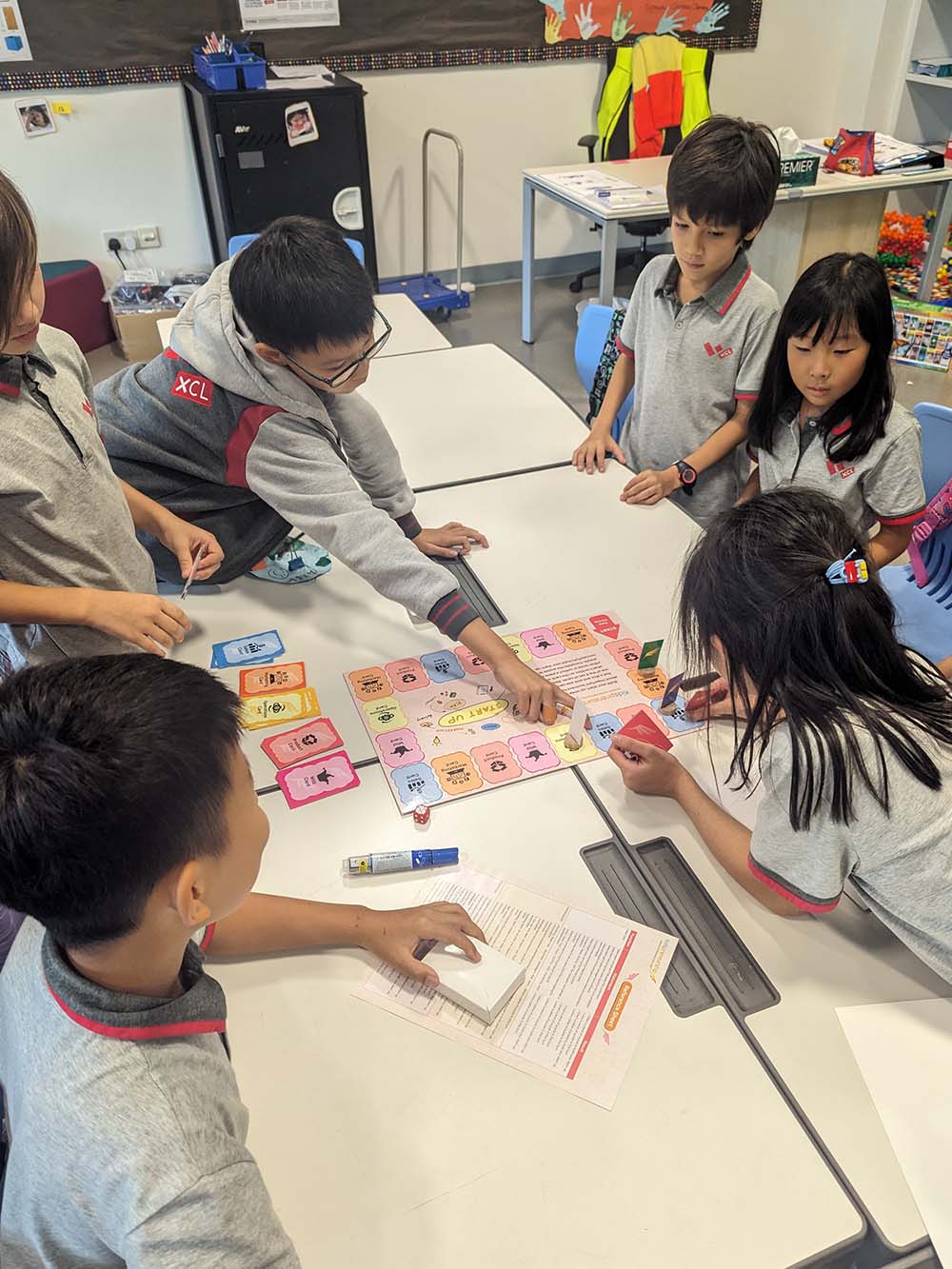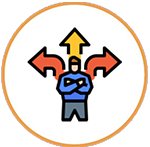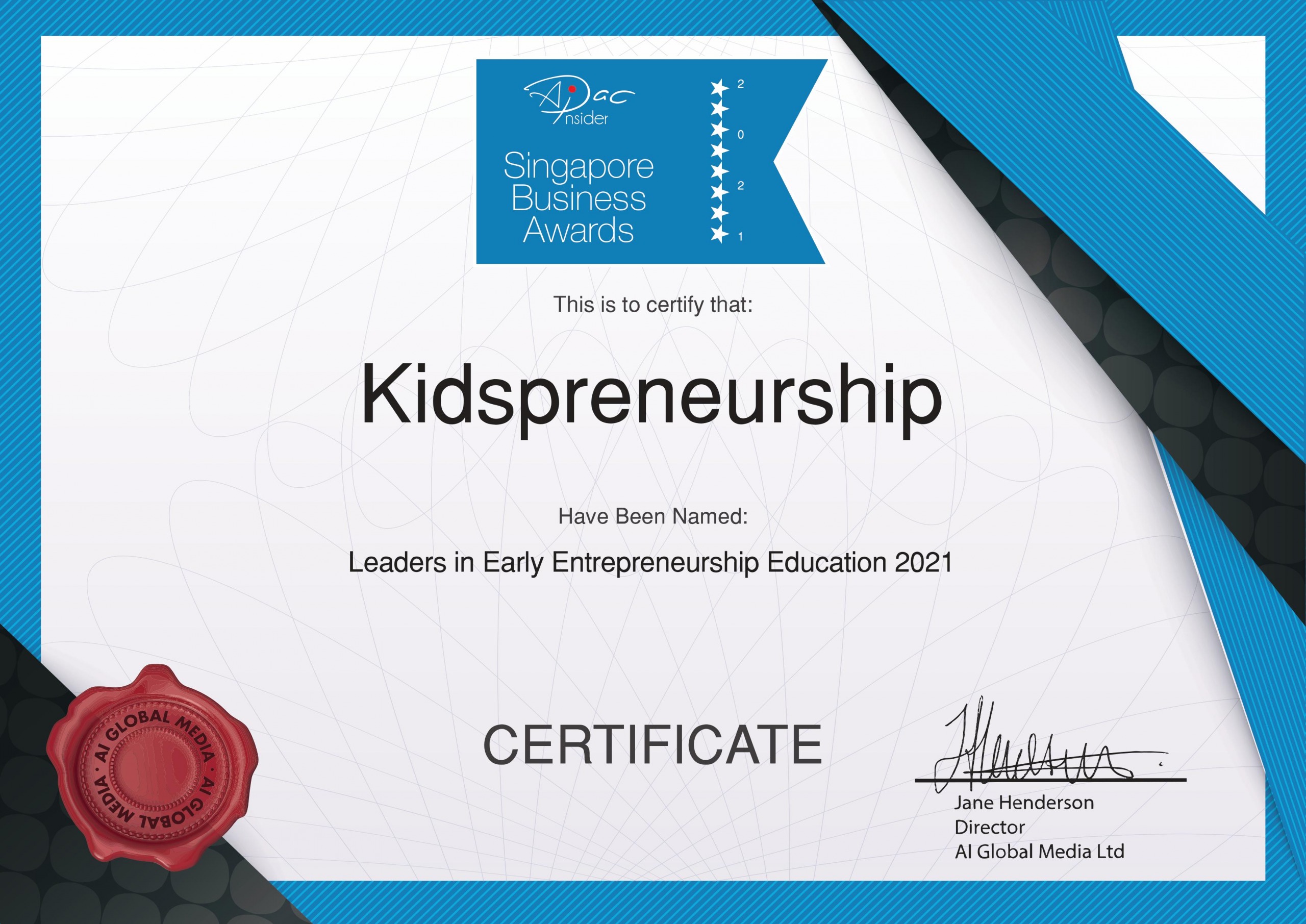
Progressive school leaders understand that only academic knowledge transfer is not enough. Success in the 21st century requires cultivating entrepreneurial thinking and real-world abilities.
Kidspreneurship empowers schools to go beyond traditional education and lead the way in preparing students for modern challenges. We offer a comprehensive toolkit designed for students and educators to seamlessly integrate a skill-based programme, fostering holistic development and entrepreneurial thinking for students aged 5 to 14 years.
An interactive learning platform for students, featuring engaging videos, hands-on projects, quizzes, assignments, industry challenges, expert sessions, and more.
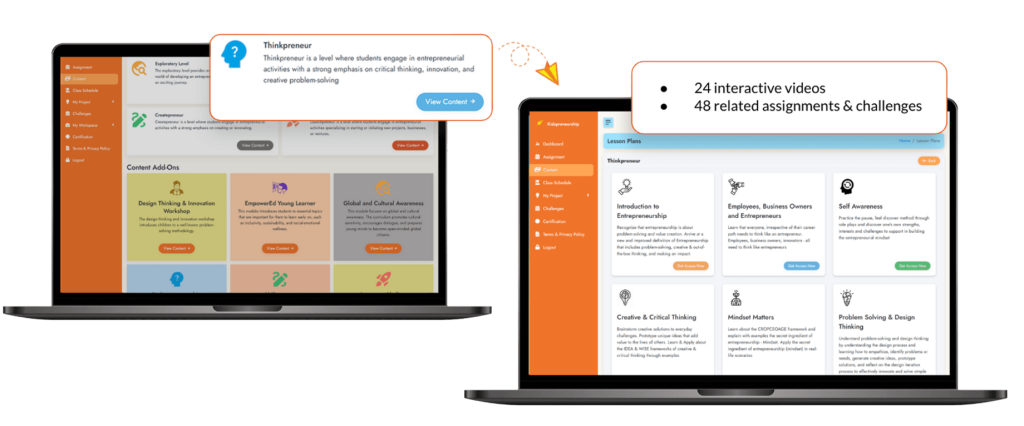
An interactive platform for educators with lesson plans, teaching guides, assessment tools, and expert resources for effective program delivery.
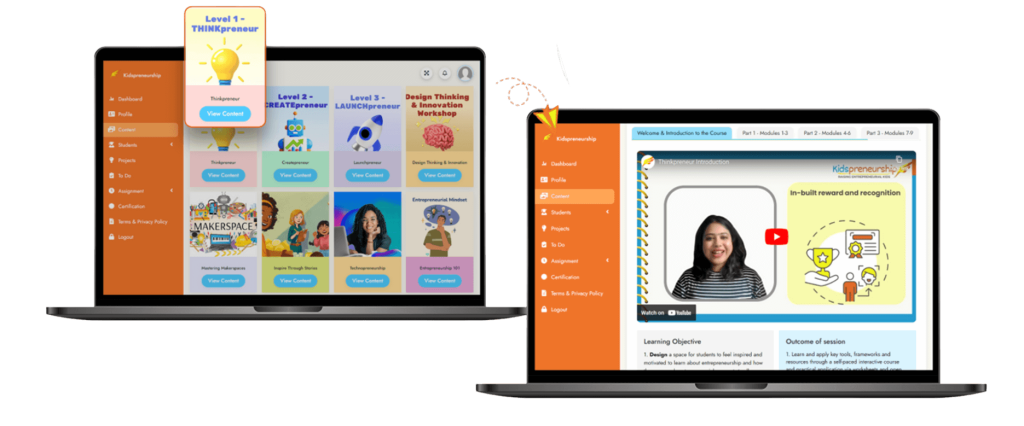
An interactive platform allows schools to manage students, monitor progress, and track performance through a dynamic leaderboard, providing insights into engagement and achievements
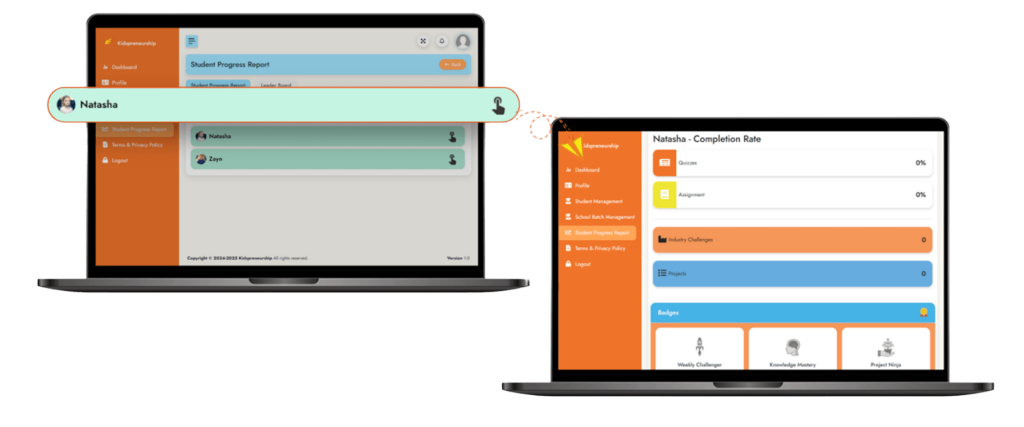
At Kidspreneurship, we use a two-pronged approach. First, we equip students with entrepreneurial skills, mindset, and foundational business knowledge through structured and unstructured learning.
Second, we integrate entrepreneurial learning as a pedagogical method through our educators bootcamp. Entrepreneurial learning is a pedagogical approach similar to inquiry-based, project-based, problem-based, and experiential learning. By implementing entrepreneurial learning as a guiding framework, students learn to create value and turn ideas into real solutions. Along the way, they build essential skills, develop resilience, and gain deeper subject knowledge.
Let’s explore different pedagogical approaches through an example for better understanding.
Register Now to Become a Kidspreneurship Powered School

School Basic
Includes access to the interactive edtech platform, all digital materials for the first level of the regular program, and a school kit.
School Plus
Includes all features of the School Basic package, plus a Thinkpreneur physical workbook and prototyping materials.
School Premium
Includes everything in the School Plus AND Access to Maker kits for each student along with makerspace workbook
The Regular Programme is offered in four progressive levels – Littlepreneur, Thinkpreneur, Createpreneur, and Launchpreneur – with each level designed to span one academic year. All subscription plans include teacher training and comprehensive implementation support. Please note that on-site trainers are not included by default but can be arranged separately upon request. These plans are designed for schools and educational partners, with pricing determined by the number of participants and the levels (LittlePreneur to LaunchPreneur) the school chooses to adopt.
Yes, entrepreneurship education can be introduced at an early age to develop critical thinking, problem-solving, creativity, and leadership skills. It can be introduced even in preschool. Check whitepaper
No, the goal is to develop an entrepreneurial mindset—identifying opportunities, taking initiative, and thinking creatively, which are valuable in any field.
An effective entrepreneurship program for schools can be introduced using both structured and unstructured methods. In a structured approach, schedule a weekly Entrepreneurial Mindset Programme (EMP) session and give it equal weightage as the core subjects. The program can be led by a dedicated teacher who can be trained. For a more unstructured option, establish a tinkering lab—similar to a library—where students can explore, experiment, and tackle tinkering and entrepreneurial challenges during their free periods, backed by our resources and guidance. Schools may choose one or both strategies; combining them amplifies their overall impact, cultivates a culture of innovation, and ensures students are well-prepared with the 21st-century skills they need to thrive.
Schools can introduce entrepreneurship through integrated learning modules, extracurricular clubs, holiday camps, workshops and entrepreneurship competition
Schools can use structured curricula, interactive learning platforms, mentorship programs, industry partnerships, and hands-on projects to create an engaging experience.
While prior business experience helps, teachers can be trained with specialized resources, lesson plans, and workshops to effectively guide students.
Schools track progress through student engagement, innovation in projects, problem-solving abilities, and real-world application of learned concepts.
Absolutely! It builds essential life skills like adaptability, decision-making, financial literacy, and leadership, which are valuable in any career path.



